Slightly Foxed Cubs is a series of reissues of classic children’s books which will, we feel, strike a nostalgic chord with many older readers and introduce a younger generation to writers whose marvellous books have, unaccountably, been allowed to slip out of print.
Fast-paced and colourful, Ronald Welch’s novels join up the dots of English history in a remarkably vivid and human way. The plots are gripping, the characters believable and the research meticulous. Elegantly designed and handsomely bound, they’re not only great reads but also distinguished additions to any bookshelf. Each title is published in a limited edition of 2,000 copies.
We’re delighted to make these wonderful books available again, in our highly collectable series of Slightly Foxed Cubs. Some of the titles in the Cubs series are already fetching high prices from second-hand booksellers, so why not start collecting this limited edition now and receive all 14 available Ronald Welch novels, inscribed with the same edition number?
No. 14, The Road to Waterloo
The manuscript of The Road to Waterloo lay unread among Ronald Welch’s papers for more than thirty years after his death and is published here, with specially commissioned illustrations, for the first time. Though not officially part of the Carey series, this novella fills a significant gap in the family story and fits neatly into the series – the French mother of its young protagonist James Carey, we learn, had fled to England during the Revolution, an episode which featured in the earlier novel Escape from France. Now James, at 17, is a Cornet in the 30th Light Dragoons, preparing to confront Napoleon Bonaparte, who has recently escaped from Elba. It’s a thrilling picture of the build-up to Wellington’s victory at Waterloo and of a great army preparing for battle, and it has all the inimitable Welch ingredients – a young hero who grows up during the course of the book, entirely believable characters and a fast-paced plot brought alive by vivid historical detail.
No. 13, Sun of York
Ronald Welch’s Sun of York is set during the final years of the Wars of the Roses, the long struggle between the houses of York and Lancaster for the English throne. Impoverished young aristocrat Owen Lloyd rides out with his father from the family’s run-down castle in the Welsh Marches to fight on the Yorkist side. He’s an angry young man, determined to reverse the family’s fortunes and take revenge on Sir John Turberville and his sons, who have laid claim to the Lloyds’ estate.
Brave and quick-thinking, Owen pursues his personal feud with the Turbervilles while at the same time distinguishing himself in battle and contributing to the victory of the Yorkist King Edward IV. He is introduced at Court, where he sees for the first time the enormous wealth of the City of London and is disillusioned by the cynical opportunism of those in power. Sun of York is a fascinating up-close picture of fifteenth-century politics – and an unexpected portrait of the future King Richard III. Finally, knighted and successful and with the family fortunes secured, Owen returns to Wales a wiser and more contented young man.
No. 12, Tank Commander
In the summer of 1914 the Germans enter Belgium and Britain mobilizes for war. Second Lieutenant John Carey, with his regiment the West Glamorgans, exchanges his comfortable quarters at Tidworth for the mud and bloodshed of the trenches. As the death toll mounts, John is called on to take responsibility far beyond his rank and experience in what often seems a hopeless situation. But with the introduction of a revolutionary new weapon – the tank – the tide begins to turn.
No. 11, Ensign Carey
In the seedy mid-nineteenth century London underworld, William Carey has a frightening encounter with George Hampton, a violent and unprincipled young man on the make. Banished from Cambridge as a result, in 1856 William travels to India, where his father has obtained a commission for him in the 84th Bengal Native Infantry, and his path again crosses that of Hampton. William is no saint, but when the Indian Mutiny breaks out among the native troops, he acts with generosity and courage.
No. 10, Nicholas Carey
It is 1853, and on holiday in Italy, Captain Nicholas Carey is persuaded by his cousin Andrew to help three Italian revolutionaries escape the Papal States. After returning to England, Nicholas runs his cousin to earth in Paris, and the two foil an assassination attempt on the Emperor Napoleon III. Rejoining his regiment Nicholas then distinguishes himself in the Crimea at the Battles of Sebastopol and The Redan.
No. 9, Captain of Foot
Twenty-year-old Christopher Carey is serving as a Lieutenant in the famous Light Brigade under Wellington during the Peninsular War. Between 1808 and 1812, Chris takes part in the retreat to Corunna with Sir John Moore, is captured by the French, falls in with Spanish guerrillas, and ends up as a Captain, having been noticed by Wellington and mentioned in dispatches.
No. 8, Escape from France
With news of the revolution in France, the Careys are anxious about the fate of their relatives, the aristocratic d’Assailly family. Young Richard Carey, still a Cambridge student, is sent secretly by his father Lord Aubigny on a mercy mission to bring them back to England. A complex tale of daring and disguise, and a vivid picture of revolutionary Paris.
No. 7, Mohawk Valley
In 1755 young Alan Carey is sent to the colony of New York by his father the Earl to look into his estates in Mohawk Valley. It’s a life-changing experience. Alan grows in moral stature as he deals with a dishonest bailiff, learns the ways of the virgin forest, overcomes hostile Indians and renders invaluable service to General Wolfe during the capture of Quebec.
No. 6, Captain of Dragoons
Charles Carey is a Captain in the Duke of Marlborough’s army during the early years of the War of the Spanish Succession – a moody, quick-tempered and charismatic figure who is also one of its most brilliant swordsmen. Having discovered that there is a traitor in the camp, Charles is sent to spy in France on a mission that ends with his imprisonment in the Bastille. But he manages to escape in time to take part in Marlborough’s decisive victory at Blenheim.
No. 5, For the King
It’s 1642 and the country is riven by civil war. Home-loving Neil Carey reluctantly sets out from the family’s Welsh estate to fight on the Royalist side in the regiment his father has raised. Sensitive and small in stature, Neil has always lived in his older brother’s shadow, but he acquits himself courageously in battle, and when he is captured by the Roundheads at Marston Moor, his life is saved by his own honesty.
No. 4, The Hawk
Harry Carey is a young naval officer aboard one of his father, the Earl of Aubigny’s merchant ships running between London and Santander during the reign of Queen Elizabeth. Relations with Spain are tense and Harry finds himself called on to save the ship from seizure by the Spanish authorities, and to help scupper a Catholic plot to assassinate the Queen.
No. 3, The Galleon
After killing a man in a duel, penniless Carey cousin Robert Penderyn escapes reprisal by joining his uncle’s merchant ship sailing for Santander in 1583. England and Spain are engaged in a trade war, and the English never know when they will fall foul of the port authorities or the Inquisition. Returning after months in a Spanish prison Robert becomes involved in foiling a Catholic plot to put Mary Queen of Scots on the English throne.
No. 2, Bowman of Crécy
Set during the Hundred Years’ War, this is the real story of one of Edward III’s campaigns. Sir John Carey is on his way to the wars in France when his life is saved by an unlikely hero, Hugh Fletcher, head of a band of outlaws living in the greenwood. Grateful Sir John adopts Hugh and his men as part of his army and they follow him to France, where their courage and skill as longbowmen are crucial in the defeat of the French at the Battle of Crécy.
No. 1, Knight Crusader
Young Philip d’Aubigny, son of a rich Crusader family who have stayed on in the Holy Land after the First Crusade, finds himself caught up in the fight against Saladin, during which he is captured and encounters the legendary Emir himself. Finally, in a series of hair-raising adventures, he escapes to take possession of the family’s Welsh estate. 1954 Carnegie Medal winner.
‘Knight Crusader is beautifully written . . .’
Read more‘Thank you once again for republishing these great books . . .’
'Thank you to all at Slightly Foxed for the full set of Ronald Welch's Carey novels you have produced over the last couple of years. I am enjoying working my way through them again and am very...
Read moreFor readers ‘who, like me, enjoy historical battles and will treasure these books . . . ’
‘The book Knight Crusader by Ronald Welch tells the story of a young Squire called Philip who (later on in the book) becomes a knight . . .’
Read more‘Your set was magnificent . . .’
'Dear SF, I’m delighted that you are publishing Sun of York as a complement to the original Ronald Welch Carey Novels! I loved these books as a child and now my 11 year old daughter has read them...
Read more‘A quarterly full of delights’
‘. . . a quarterly full of delights and articles about books new and old, published and out of print, beautifully illustrated and written by excellent authors . . .‘
Read more‘I was pleased and amazed . . .’
‘I was pleased and amazed to see you are publishing the Ronald Welch books. As a child I adored them and they infused in me a great love of history . . . Over the years I have collected most of his...
Read more‘A big thank you to Slightly Foxed . . .’
‘I am looking forward to receiving the set, having read my first Ronald Welch novel as a very young boy in the late 1960s leading to a life long interest in history and historical fiction. I have...
Read more‘I look forward to introducing my grandchildren to the Careys . . .’
‘Thank you very much for The Road to Waterloo which arrived safely this morning – just as I was starting to get withdrawal symptoms after finishing the series . . .’
Read more‘I was immediately intrigued . . .’
‘The other week, a surprise parcel turned up in the mail for me. Inside was a beautiful, clothbound new edition of a never-before-published Ronald Welch book, The Road to Waterloo . . .’
Read more‘These new editions are exquisite . . .’
‘I just wanted to let you know how thrilled I was to receive my set of Ronald Welch books earlier this week. These new editions are exquisite – simply wonderful to hold, feel, smell and browse...
Read more‘A beautifully produced volume . . .’
‘Hello all at Slightly Foxed, thanks so much for The Road to Waterloo which arrived today – safe, sound and unexpectedly early! Once again, it’s a beautifully produced volume and maintains your...
Read more‘I just wanted to drop you a note to thank you . . . ’
‘I just wanted to drop you a note to thank you for the prompt shipment of the lovely set of Ronald Welch books. They’re simply gorgeous, and they make me want to ditch my university teaching for...
Read moreLearning from the Wilderness
You should never camp in a ravine. Look for higher ground, and a windbreak – a fallen tree is fine, but rocks are the best. Gather balsam wood for bedding, and use your tomahawk to cut firewood...
Read moreJoining the Grown-ups
Revisiting the Carey novels today, I am struck by how fresh and magnetizing they have remained, and by how much there is in these books – as there is in all good children’s literature – that...
Read moreWolf Hall for kids: Why Ronald Welch’s novels will help your children fall in love with history
Ronald Welch, a tank commander turned schoolmaster, is one of the 20th century’s most underrated children’s writers. Like Hilary Mantel, he understood that what makes a lost epoch stick in your...
Read moreEscape from France | The news from Paris was brief and startling . . .
The news from Paris was brief and startling. King Louis, the Queen and all the Royal family had escaped from Paris and were believed to be making for the German frontier. Already a petition had been...
Read more




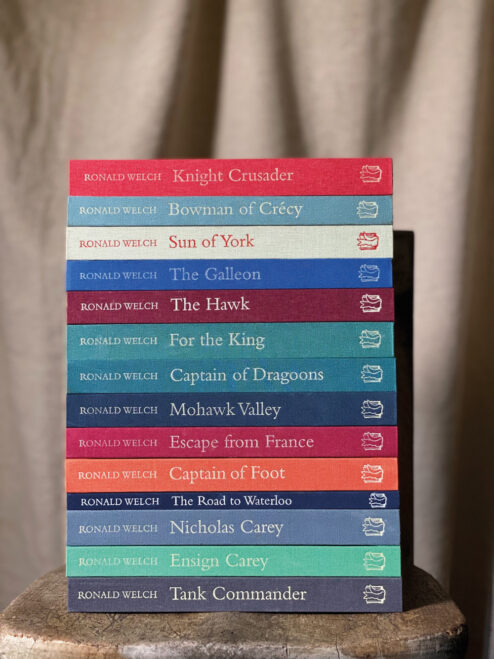
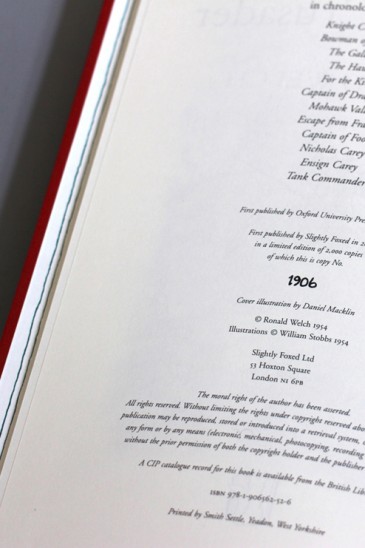
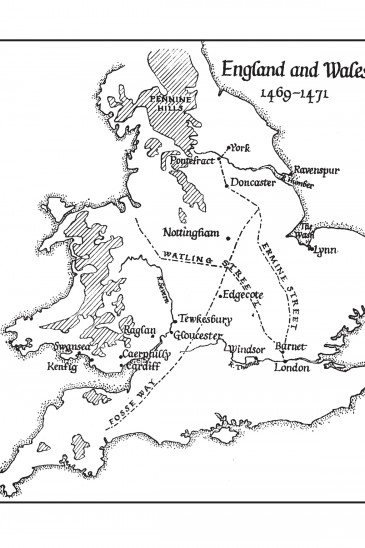
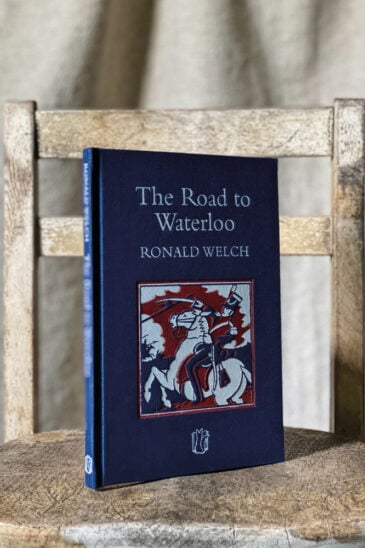
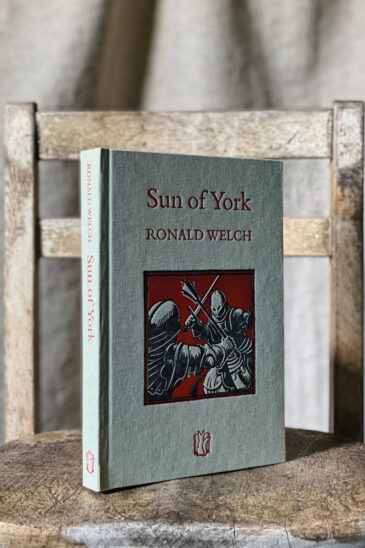
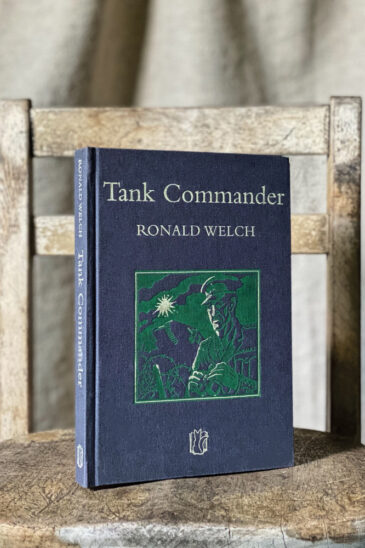
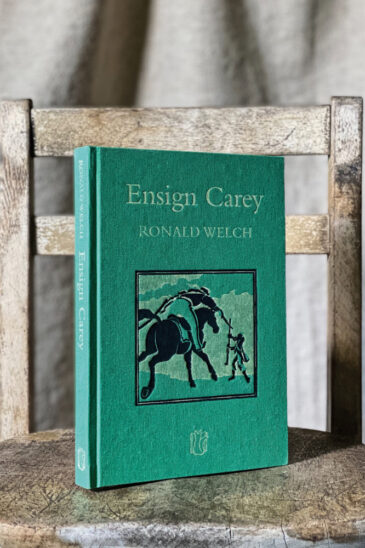
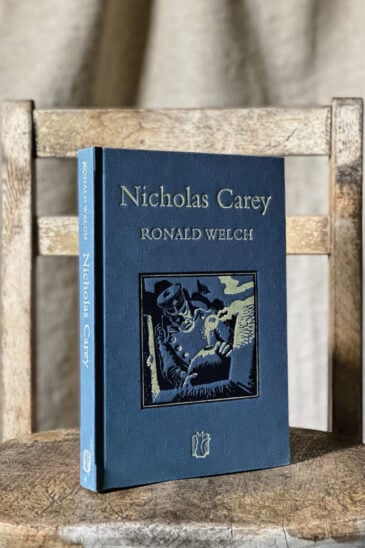
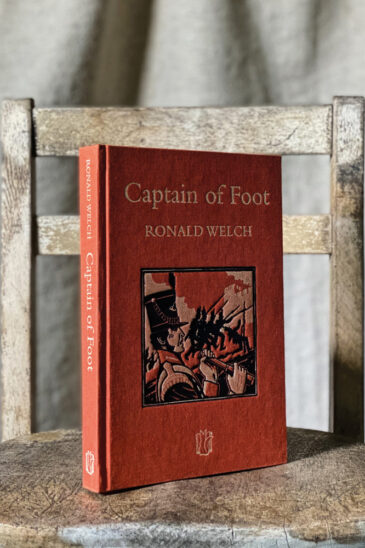
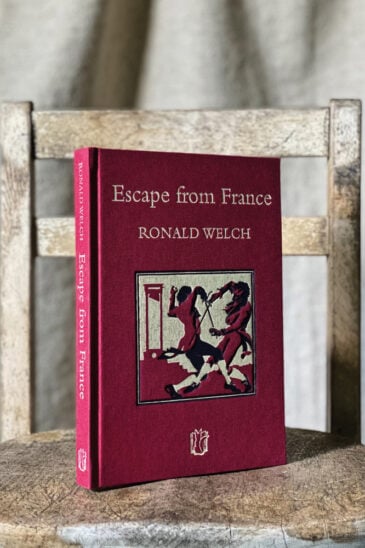
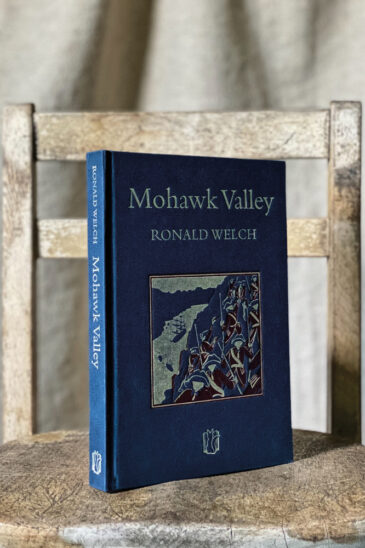
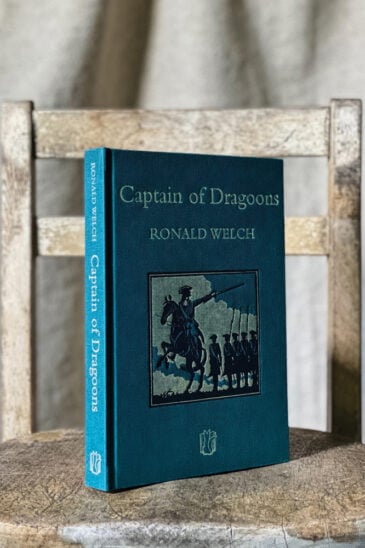
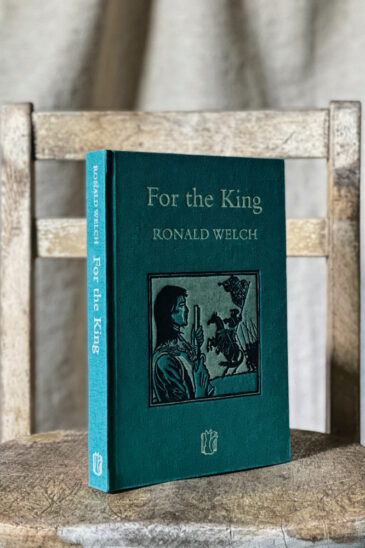
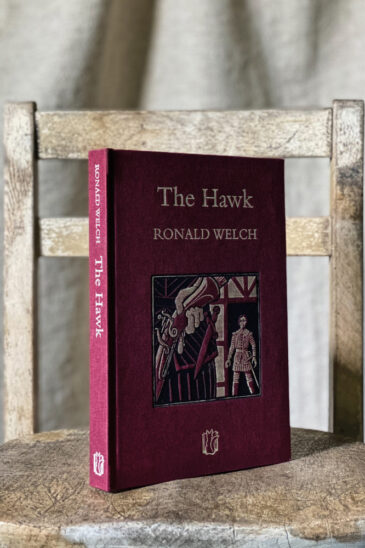
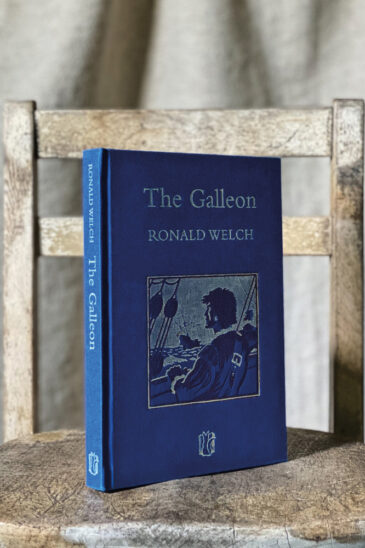
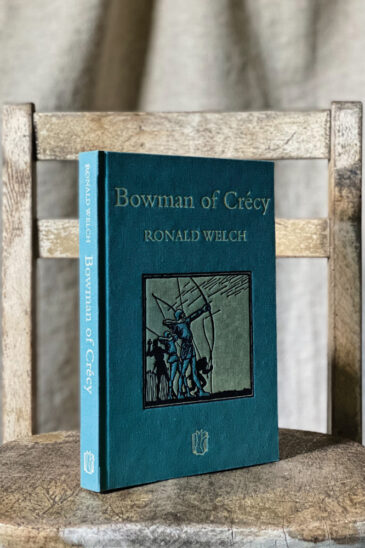
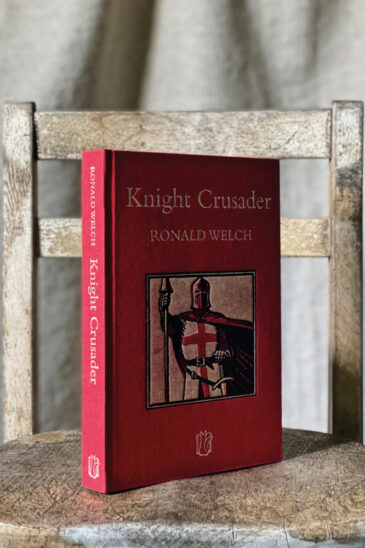
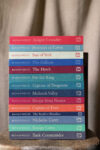
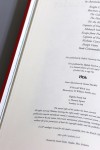
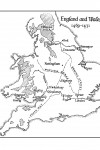
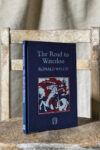
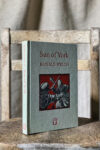
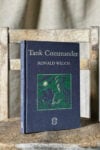
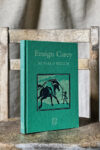
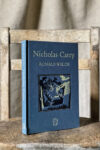
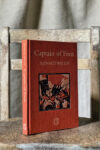
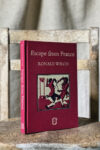
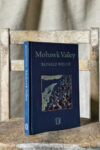
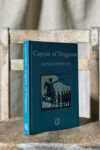
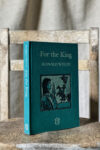
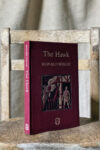
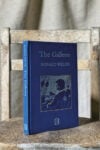
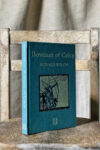
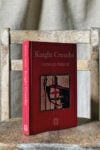
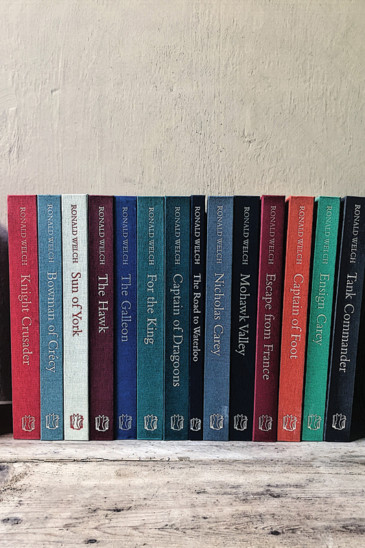


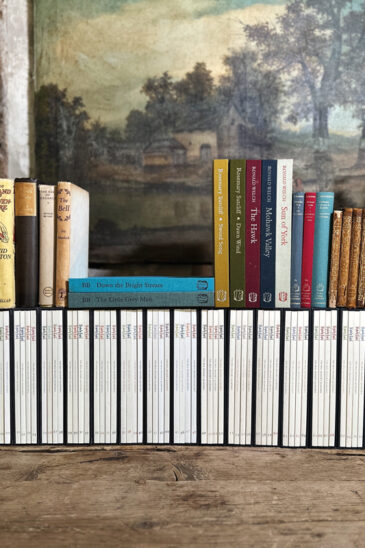
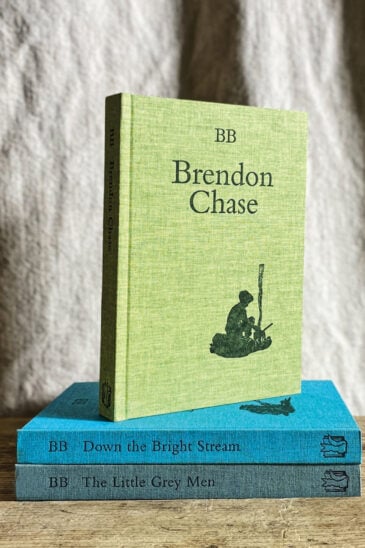
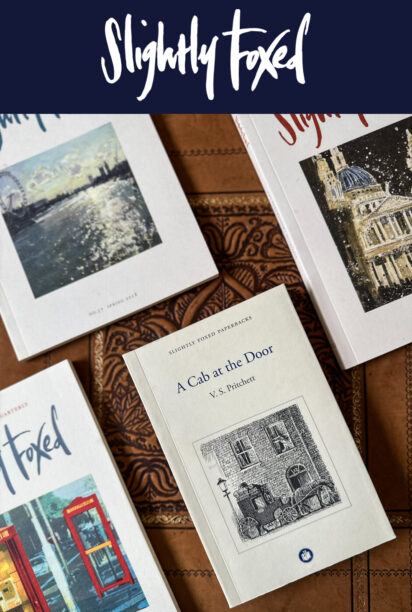
I’m delighted that you are publishing ‘Sun of York’ as a complement to the original Ronald Welch Carey novels! I loved these books as a child and now my 11 year-old daughter has read them all and loved them as well. Your set was magnificent and is already a much-loved family book collection. Please will you also consider publishing ‘The Gauntlet’ (which I have never read!) and ‘Zulu Warrior’? RW’s wiki page also has a few other books listed? Do you know anything about them? Best wishes
We’re thrilled that you and your daughter have both enjoyed them so much and that she proves that these books are not ‘just for boys’! As yet we’re afraid there are no plans to print either ‘The Gauntlet’ or ‘Zulu Warrior’ but we’ll keep all of our readers up-to-date with any further Ronald Welch developments.
I certainly think they are not ‘just for boys’! The stories are pretty exciting and the historical details are a great way for children to get a taste for history and to feel that they learned something. I remember writing an essay about the Battle of Blenheim just as I was reading ‘Captain of Dragoons’! I can’t recommend these books highly enough and can’t thank you enough for making them available again after so many years.
Book 8 in Ronald Welch’s Carey Family Series is Escape from France, a fast-paced adventure set during the French Revolution. I first stumbled across Ronald Welch’s stirring adventure stories for boys at our local library, which still owned a few of the old Oxford University Press hardbacks, and Escape from France was one of the books I read. At the time, I considered it an exciting story, but also less substantial than many of the other Carey Family books I’d read, especially my favourite, Captain of Dragoons.
So I was interested to see what I would think of it lo these many years later, as an adult.
We meet Richard Carey at Cambridge, a capable but arrogant young man who easily deals with all the challenges that come his way–whether it’s academic study, a crooked bookmaker with a pugilistic bodyguard, or a ne’er-do-well cousin who must be rescued from his gambling debts. Meanwhile, however, political conditions are deteriorating across the channel in pre-revolutionary France. When the Careys’ distant cousin the Marquis of Vernaye is arrested, Richard’s father (the 7th Earl of Aubigny) and uncle (international hellraiser Sir Rupert Carey) commission Richard to cross the Channel to France and rescue the Marquis’s family.
Richard laughs at Sir Rupert’s wild stories and wilder advice. But once landed in France, he finds that the once most civilised nation on earth has become a more dangerous place than he imagined. To make matters worse, cousin Armand is determined not to escape until the Marquis of Vernaye can be rescued from the feared Abbaye Prison itself. In a France beset with spies, informants, adventurers, card sharks, and duellists, Richard begins to realise that Sir Rupert may not be as crazy as he thought…
This story reminded me very strongly of two other books, GA Henty’s In the Reign of Terror and (of course) Baroness Orczy’s The Scarlet Pimpernel. Indeed I’m sure there have to have been a lot of other books written about heroic Englishmen crossing the Channel to rescue French aristocrats from the Reign of Terror. Given that, it’s tempting to ask what Escape from France adds to the conversation.
In some ways, I don’t know that it tries to add much to the conversation about the French Revolution and as usual, Ronald Welch shies away from investigating too closely the ethical questions inherent in the period of history he’s writing about. The Marquis of Vernaye is said to have been kind to his tenants, while other aristocrats and the ancien regime at large are shown to have been oppressive. One thing I liked was that there are sympathetic characters and villainous characters among both the aristocracy and among the republicans, and one main character is shown to be a moderate republican who remains loyal to his country despite the Terror–I felt there was a good representation of a few different perspectives.
Ronald Welch is worth reading for two main reasons. One is the depth and accuracy of his military history, and his best books (like Captain of Dragoons and Tank Commander) tend to focus on wars. I actually missed that focus in Escape from France, which seemed a little more romantic and less grounded in tone.
There’s another main reason to read Ronald Welch, though, and that is his continual discussion of masculine maturity. Escape from France is about a young man who thinks himself competent, but has really lived a short and privileged life. It’s only when he finds himself alone and on the run in France, without any of the advantages of being an Earl’s son in England, that he begins to realise how much he has to be humble about.
Escape from France is an exciting, fast-paced adventure through revolutionary France. I enjoyed it, and I’d recommend it, together with the rest of the Carey Family series, for children and young teens. The series has been out of print for many years, and is currently being reprinted in limited clothbound editions for Slightly Foxed, so get a copy while you still can!
In Mohawk Valley, young Alan Carey is forced to leave Cambridge in disgrace after being accused of cheating at cards. Expelled from the college and a pariah among his erstwhile friends, Alan heads back to the ancestral home at Llanstephan to face his father, the formidable old Charles Carey familiar to readers from Captain of Dragoons. The Earl, together with his friend Mr William Pitt, comes up with a plan: ship Alan across the Atlantic to make his fortune and repair his reputation taking care of the Earl’s properties on the American frontier. Once in America, Alan finds his hands full learning woodcraft and dealing with untrustworthy stewards. But not all is peaceful in the backwoods, and political maneuverings in London and Paris threaten to bring war on the frontier.
You guessed it: this is the book about the French and Indian War. Overall, I have to say that this is my least favourite of the Carey Family series so far. The plot was more episodic than most of Welch’s other books, and I didn’t at all care for the portrayal of one of the villains as a Scripture-quoting fanatic who first cheats and then attempts to murder our hero. The New England Puritans had their oddities, especially as time went on, but as a general rule they were sincere, law-abiding people, and I felt that by making their sole representative in this book a villain, Welch was trying to say something about the Puritans, and sincere religious faith, as a whole.
Still, there was plenty to like about Mohawk Valley. Ronald Welch wrote for young people, especially young boys, but I usually find his books full of thoughtfulness on topics of maturity and manhood. One thing that I think all his books have in common is that they challenge their young heroes, and through them the readers, with difficult decisions and tasks. And one of the reasons why this is so challenging to the reader is that Welch does a very good job of showing how difficult his heroes find their tasks: he writes sympathetically to their fears and doubts in such a way that he seems sympathetic to the fears and doubts of the reader too.
So, in Mohawk Valley, Alan Carey faces nearly the most depressing fate for any young member of the English nobility: when he elects to fight a duel to clear his name, his nerves fail him and he drops his pistol, convincing everyone present that he’s not just a cheat but also a coward. Alan heads home convinced that he’s shamed not just himself but also his family name and his swashbuckling old father. The rest of the book is about how he rediscovers his courage and self-respect, even as he relinquishes his status as an English nobleman for the harsher and more egalitarian life of an American backwoodsman. There’s more than one way of being brave, and more than one way of being noble, the book seems to say: if you fail at one thing, pick yourself up and try another. I can imagine that being a fairly encouraging thing for a young man to read.
The last third or so of the book is taken up with the French and Indian War, with fairly detailed accounts of the battle of Ticonderoga and the fall of Quebec. As usual, Welch writes about wars without criticising the diplomatic decisions that cause them, but his battle scenes are always vivid, visceral and intensely serious.
Mohawk Valley may not be my favourite Welch book, but it contains all the things that make the rest of the series worth reading: historical detail, military realism, and sympathetic characters facing tough decisions. The series is currently in print in beautiful limited editions available from Slightly Foxed – particularly recommended for home educators!
I have been the very happy recipient of the Carey novels and have loved every release. I first came across them as a boy in the ‘70s and being a history nut I was immediately smitten by them. Re-reading them as an adult has been a wonderful experience, the lack of any female characters does feel quite strange though! For years I tied to track them down and was dismayed when eBay started that they were so rare and expensive. Your release has been fabulous and a massive thanks.
I thought this Carey set was great, I read it as a child in our local library when 9/10 years old, always found the boys books more interesting, much more adventurous! I bought this set for nostalgia and found them just as good as in the past (now 64 years old)! Ronald Welch’s books helped me to appreciate history and how one era is linked so closely with another leading to what we are as a nation.
Thank you and all at Slightly Foxed for the full set of Ronald Welch’s Carey novels you have produced over the last couple of years. I am enjoying working my way through them again and am very pleased to have finally completed my collection of these wonderful historical novels after 45 years. Thank you once again for republishing these great books.
We had all these when published in 50s and 60s by OUP – managed to keep hold of a few or pick up second hand copies but subscribed to the reprint and am really enjoying them again – so good, and despite the apparent lack of females, I do believe there is one in Escape from France – Louise I think, the daughter who escapes from France.
They are very well written and beautifully illustrated – a great buy and would make a great present for anyone with an interest in history.
So many fond memories from childhood disappear when revisited as an adult. How many movies or TV shows have we loved as a child? Only to discover the terrible acting, the thin plots, the ridiculous sets. Well I am here to reassure you that the Carey novels are even better the second time around.
Yes they were written in a different time. Ronald Welch placed a great deal of importance on people’s faces. Firmness of character was always apparent in the shape of the jaw, the forehead, the look of the eyes. And women don’t really exist in his stories.
As a 10 year old, they were the greatest books ever. As a 45 year old, the stories are still captivating, the writing style crisp, I have a greater appreciation for the humanity in the stories. People are scared, they doubt themselves.
Something else I appreciate more now is how personal the stories are. The Careys are involved in some of history’s greatest conflicts and battles. Yet these are merely background to the personal development of the character.
‘Over the last few weeks I’ve been rediscovering an almost forgotten aspect of childhood in the company of two very exciting young men: Phillip D’Aubigny, Knight Crusader and soldier in the company of Richard Coeur de Lion, and Harry Carey, Lieutenant on the newly-built sailing ship the Hawk, bound for the Bermuda coast in pursuit of Brazilmen (galleons laden with Spanish goods). I’ve trudged across unforgiving deserts, my mouth parched, pulled down by the weight of my battle gear, and swarmed aloft with the younkers to scan the horizon for a trace of land; I’ve braved the wrath of Saladin and earned the approval of Sir Francis Drake. That I’ve done all this from the comfort of my armchair has done nothing to prevent the bated breath, or the late nights on watch… oh no, sorry, the late nights when I have to read just one more chapter before turning off the light . . .
The wonderful Slightly Foxed have recently branched out into publishing children’s classics, starting with Ronald Welch’s series which follows the fortunes of the Carey family of Llanstephan in Wales from the twelfth century to the twentieth, a dozen novels written between 1954 and 1972. The publishers very kindly sent me both the first and the most recent, to make sure that I got the best taste of the series. I begin to suspect they did so with every intention of hooking me so firmly that I will buy the rest – because, of course, I will, I’m dying to know how the family fares through the different periods.
They are in some ways books of their time – for instance, I can’t imagine a modern author who would dare to exclude women so totally from the adventures of his young heroes. They are also, in the age of the doorstop novel, comparatively short, at around 250 pages, so the action is intense and some of the incidental character development fairly thin. What this allows is lots of action, ably supported by excellent period detail – the books are packed with information about the sort of things which traditionally interested boys growing up in the 1950s: armour and armoury, casting cannon, duelling techniques, sailing ships and piracy on the high seas. Happily, these are all things I embraced enthusiastically in my own ’50s childhood, and I’ll forgive the lack of female characters and the occasional, and perfectly realistic, bit of racism, and just enjoy what’s on offer:
The Spaniards favoured the cannon; they stood in close to their enemy if they could, and battered him to pieces with their heavy round shot. The English, under the influence of Hawkins, preferred the culverin. His new galleons were handier than the Spanish ships. They could gain and hold the weather gauge, stand out of range of the cannon, and yet hit the enemy with their long-range culverins. There was one possible flaw to this argument. It was said that the culverin shot was too light to inflict sufficient damage at long range. (The Hawk, p.52)
Doesn’t that make your heart race? Don’t you long to crouch behind a bunker while the new culverins are tested with a double load of powder, fired twice in quick succession to show any weakness in the barrel? Or to stand on the walls of the awe-inspiring Krak des Chevaliers or to face the ruthless Old Man of the Mountains, legendary leader of the Assassins? Later books in the series promise just as many thrills, with titles like Mohawk Valley and Tank Commander.
Slightly Foxed Cubs are exquisitely produced, buckram-bound and joy of joys, lie flat when open, which makes them a pleasure to handle and read. The illustrations are as much of a pleasure as the text – there is a double-page spread of Harry’s galleon the Hawk that I’ve fallen in love with, it’s so redolent of the qualities that I’m raving about here, all that is best of the Boys’ Own adventure story. I’ve admired the detail in the illustrations, too – they are very muscular and bold (reminding me rather of Charles Keeping’s work) and do much to convey the nature of the characters and settings, whether the decadence of a Spanish port official in The Hawk or the massive bulk of Krak in Knight Crusader. If you have a budding explorer in the family, this series (and so far, there are six available) will make perfect Christmas presents, the kind that the owners will still be treasuring when they are 90.’
Thank you for this well received series – a great hit with my young nephews and nieces!
I am looking forward to receiving the set, having read my first Ronald Welch novel as a very young boy in the late 1960s leading to a life long interest in history and historical fiction. I have been collecting Ronald Welch books for some time, but these are becoming more fragile with age. A big thank you to Slightly foxed for doing a hard cover reprint, there are many RW fans out there (including my teenage daughter) and original editions are becoming prohibitively expense. I’m particularly keen to read the newly published novella.
I just wanted to let you know how thrilled I was to receive my set of Ronald Welch books earlier this week. Each book was beautifully packed and the set arrived Down Under safely in a ridiculously short space of time. I read and treasured most of these books as a child (some as repeated borrowings from the local library) and they have been a major stimulus for my life-long passion for history and international travel. Over the years, I have collected various old editions (first, second, third printings in whatever condition) for the simple delight of re-reading them. These new editions are exquisite – simply wonderful to hold, feel, smell and browse through. Thank you so much for bringing these superb books back into print. I can’t wait to start re-reading them in chronological sequence and then sharing their joys with other young minds. Best wishes and many thanks.
Just wanted to say thank you to Slightly Foxed for bringing these beloved books back into my life. I placed the order late on a Friday afternoon, and to my utter amazement, received them in Malaysia, at 4pm the following Monday!
As a child, I borrowed and re-borrowed the few Ronald Welch books that my small home-town library had, over and over again. They were an escape into another world, and most likely a key contributor to my life-long fascination with military history. Mr Welch taught me so much, from the tactics used at the Horns of Hattin, to the comparative advantages of culverin versus cannon! These books have lost none of their magic with time, and the detail with which the author wrote makes it easy to immerse yourself in them.
The set itself is an excellent one, and the volumes are nicely bound and printed. Heartily recommended.
My world outlook was transformed by a series of historical children’s novels by Ronald Welch – the Carey books, about an aristocratic Welsh family that fought in every war and conflict from the Crusades to the First World War. There are a good few volumes in the series: the first one I read was called Knight Crusader, set in the Holy Land, but there were so many brilliant ones – Bowman of Crécy, For the King (about the Civil War) and Nicholas Carey, set in the Crimean War. I read them at my prep boarding school, aged 11, and they were the single most useful thing I did there. They taught me a loft about British history and also about manners, chivalry, snobbery and heritage. The author was a grammar-school headmaster and it would have been marvellous to have been taught by him.
‘Ronald Welch, a tank commander turned schoolmaster, is one of the 20th century’s most underrated children’s writers. Like Hilary Mantel, he understood that what makes a lost epoch stick in your mind is not the dates but the details.
His books positively foam with information: why a longbow is so much more deadly than a crossbow; the art of reloading a screw-barrelled pistol; how to get revenge when your 14th-century warlord neighbour pinches one of your fields; the cheapest way to get from Cambridge to London in 1789, what those charming cylindrical, be-pom-pommed hats in the Napoleonic Wars are called (shakos, apparently) . . .
In all, Welch wrote 20 novels, but his grandest project was the Carey Family cycle, published between 1954 and 1972. Out of print for years, but now reissued by Slightly Foxed, these 12 enchanting – and addictive – adventures follow a single noble Welsh family, starting in Palestine (or “the Kingdom of Outremer”) in 1186 with Knight Crusader, and ending in 1917 with Tank Commander. As the series’ modern editor, Hazel Wood, puts it, they “join up the dots of English history in a remarkably vivid way”.’